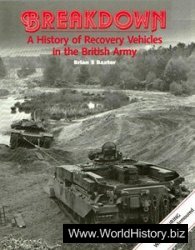Unusually, the beginning of this narrative attempts to normalize the setting, location, and actors: everything is just ordinary, and (unlike many other mythical narratives) it takes place in the city of Nibru, a real, known location. The first person pronoun ‘we’ is introduced, to involve the audience.
‘At that time’ (it is implied that this was recent), a goddess warns her daughter about the danger along the river bank from the lusty and irresponsible god Enlil. As the story unfolds, the daughter, Ninlil, resists Enlil’s first advance, with various excuses. Enlil relies on his minister Nuska to transport him across the river so he can have sex with Ninlil. Their encounter takes place by the river, as they bathe, float downstream by boat, or cross over by ferry.
Next, Enlil is walking in the Ki-ur, the courtyard of his temple in Nibru, and is forced by the other gods to leave the city, as being ritually impure. The youthful Ninlil, emotionally captive, follows him. In three parallel episodes, Enlil speaks first to the keeper of the city gate, then—as the location becomes more sombre—the man who guards the river of the Underworld, and finally the Underworld ferryman, saying ‘Don’t tell Ninlil where I am’. Each time, when she asks after Enlil, he answers, disguised as each man in turn, that he does not know where the god is. Ninlil then offers to have sex with him, telling him excitedly, ‘The great god Enlil has had sex with me already’. He then has sex again with her: whether he reveals his identity or not is unclear.
The psychology of this is complex. Enlil seems to want to escape from Ninlil. Ninlil seems willing to have sex with anyone. Or is it all a complex sexual game? Successively Ninlil becomes pregnant with the moon-god Suen, two gods associated with the Underworld (Nergal and Ninazu), and Enbilulu, a deity connected with irrigation. The poem ends with a praise of the fertility of Enlil and Ninlil.
There seems to be no concern over the obvious problem of serial pregnancy and multiple births, which here seem to override natural laws. Although Enlil is ritually impure from having sex (perhaps in a holy location), there are no moral overtones; and Ninlil seems to be just as promiscuous as he is. On a straightforward level the poem explains the parentage of various deities.




 World History
World History









